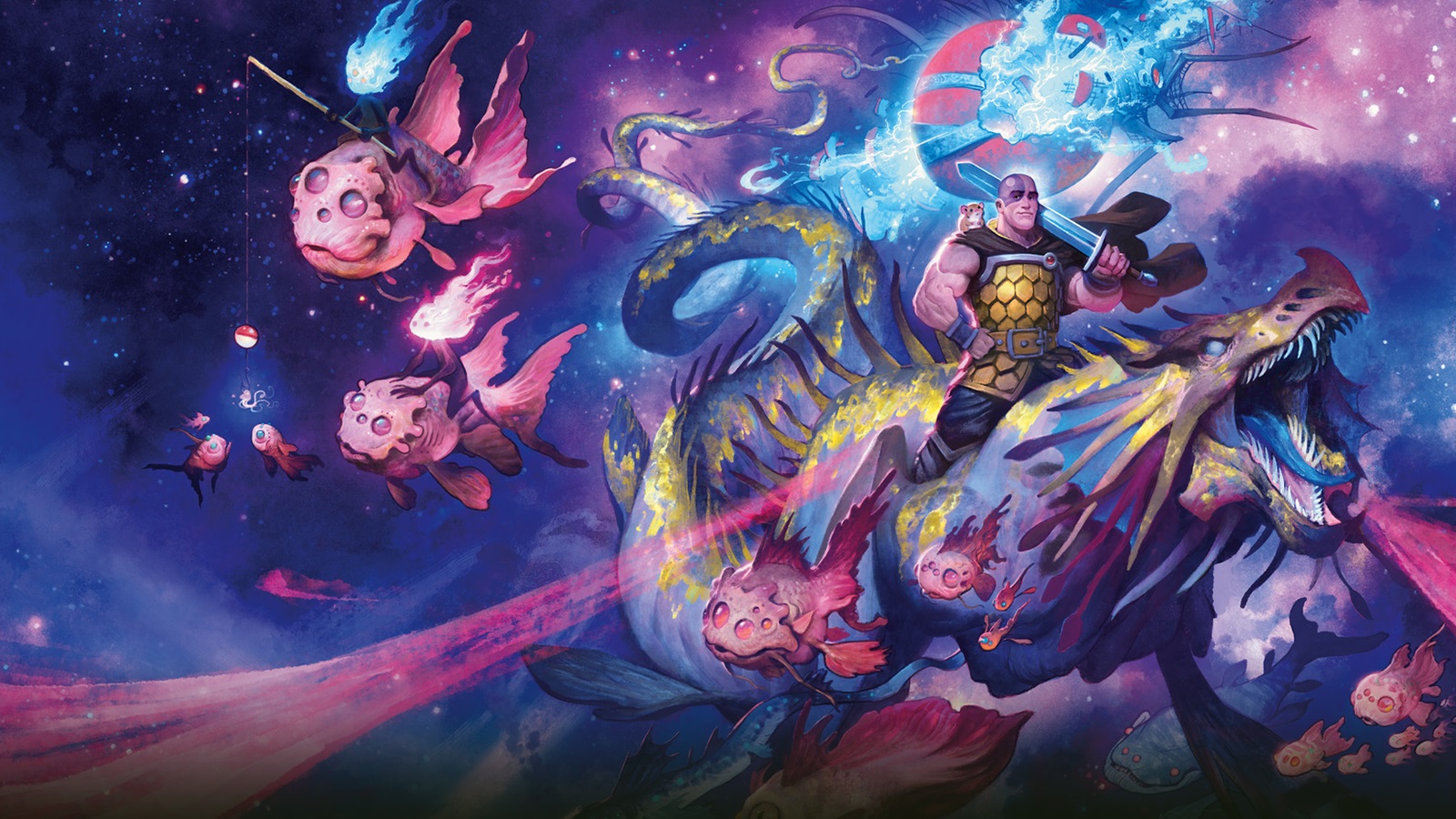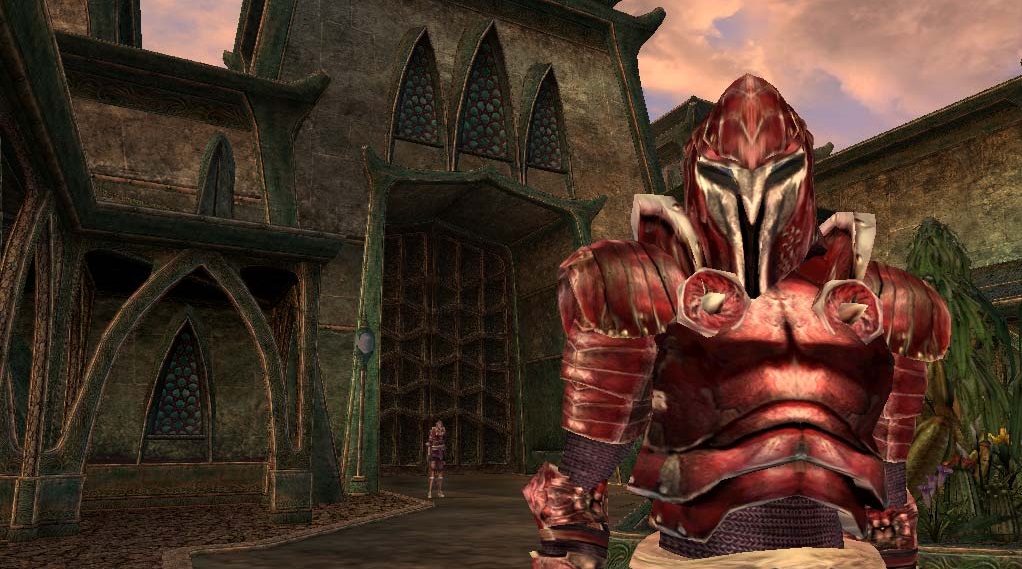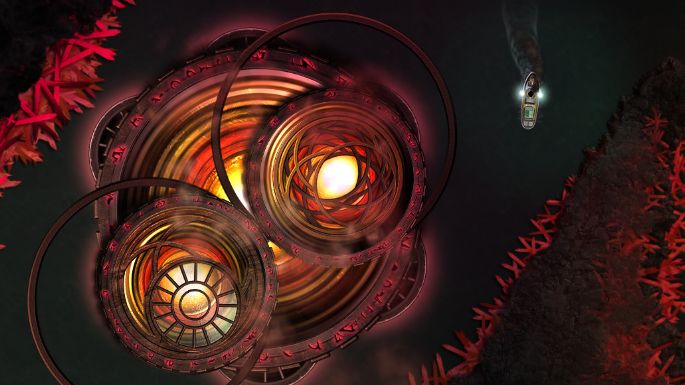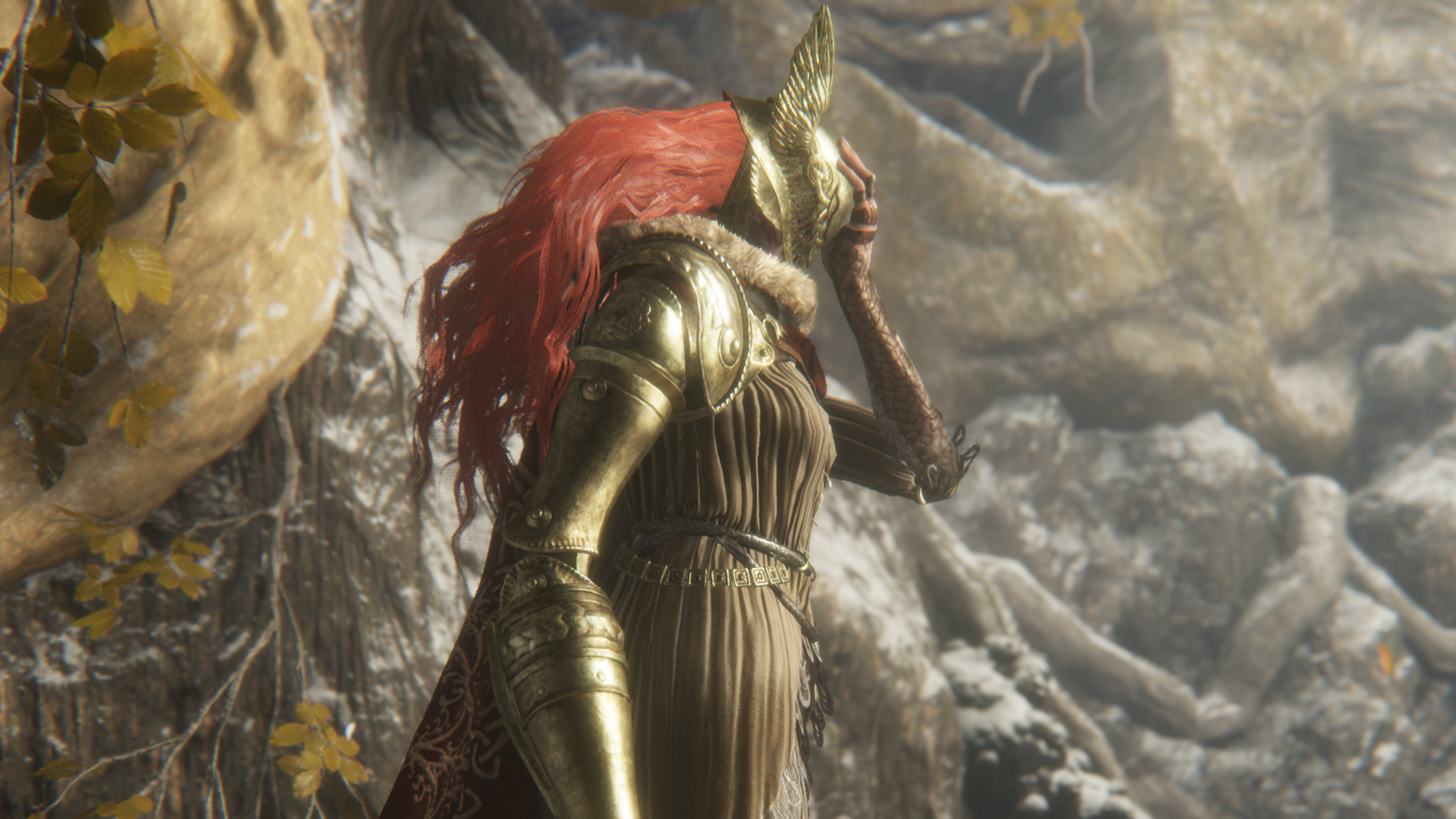Videogame fantasy settings are staler than mouldy bread right now
Time to kill off the elves and get weird.
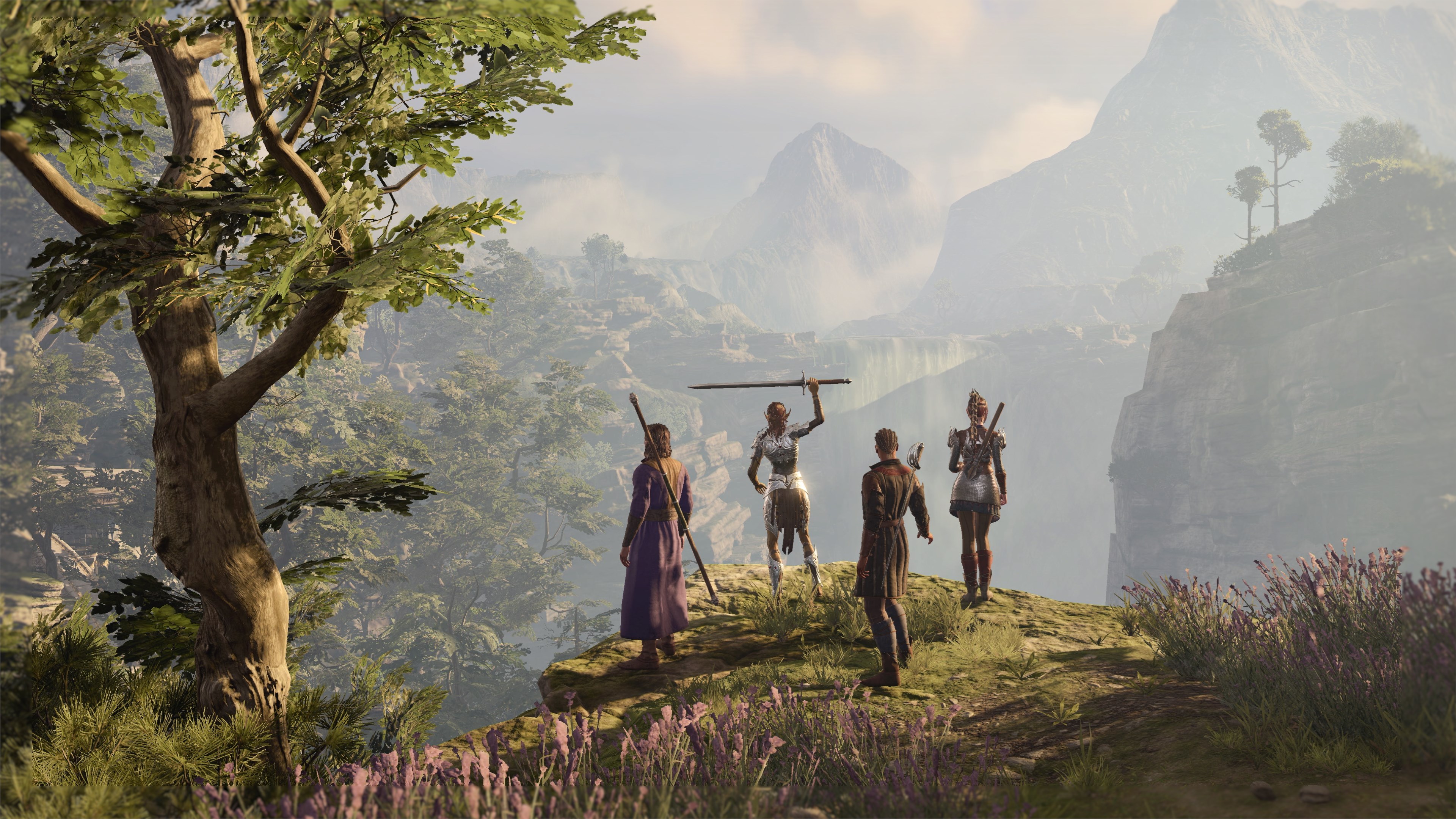
The imminent launch of Baldur's Gate 3 has filled my head with thoughts of elves and dragons and enchanted swords, all of which I've realised I'm utterly exhausted by. My tolerance for fantasy inspired by European folklore and Tolkien has entirely run out, leaving me wishing game developers would delve into weirder places to look for a new muse.
Baldur's Gate is, of course, beholden to an existing universe, one of the most familiar ones, so these mainstays are inevitable. But the world of Toril, where the Forgotten Realms are situated, is one of the least exciting locations in D&D, especially when compared to the wonderful mess of the planes or the void between worlds that plays host to Spelljammer campaigns. Gimme some of that cosmic fantasy.
That said, Larian deserves credit for still embracing the odder side of D&D. The focus on mind flayers and body horror, the introduction of characters like The Dark Urge and, of course, having sex with a druid using the Wild Shape spell ensure that Baldur's Gate 3 stands out. The studio is clearly having a lot of fun within this otherwise conventional setting and trying to push it in unusual directions. But we are still inundated with the overly familiar, where even the most celebrated of fantasy games feel obstinately conservative, ticking off a dizzying array of ancient tropes.
Traditional fantasy isn't inherently shit. I'm always going to be fond of dwarves, and not just because they're frequently presented as Scottish. It's just that so many games, films and books end up retelling the same stories—ones as old as Lord of the Rings, which itself owes a huge debt to folklore. Their impact has been dramatically lessened by oversaturation and an overzealous fixation on racial traits: elves are haughty, dwarves are taciturn and greedy, orcs are bad and dumb. This makes even new tales seem staid and predictable.
It's one of the reasons I still cling to Morrowind, a land where people live inside carapaces in a volcanic desert, where wizards fall from the sky, and where public transport is dominated by large, adorable bugs. And it's proof that you don't need to toss out every single familiar element just to make a place feel alien. You've still got your prophecies, lots of lots of elves, schools of magic—but it never stops being delightfully weird. Mind you, getting rid of some of those things would still be welcome.
Unfortunately, Bethesda ended up going in the opposite direction. When it followed up Morrowind with Oblivion (a big European forest) and Skyrim (Scandinavia) I didn't suddenly kick the series to the curb, but my enthusiasm for exploring these locations never reached the heights of my journey through their predecessor. I'd seen the light, and generic fantasy ceased to float my boat.
I'd seen the light, and generic fantasy ceased to float my boat.
For those looking for a mix of classic fantasy and lots of novelties, Shadowrun has a lot to offer. This tabletop setting, which has inspired a variety of videogames, including the excellent Shadowrun: Dragonfall and Shadowrun: Hong Kong, splices urban fantasy with elves and orcs. Big corporations run the show, but they exist in a world where magic is very real and where they might be hacked by a cybernetically enhanced dwarf. This combination of cyberpunk and traditional fantasy results in a unique concoction with plenty of surprises bubbling to the surface.
Keep up to date with the most important stories and the best deals, as picked by the PC Gamer team.
Even more than sci-fi, fantasy allows creators to eschew the rules of reality, where anything can make sense if you give it enough context. But it often feels like developers want to make fantasy settings even more familiar, encapsulated by the trend of tackling issues affecting the real world, like how the plight of Dragon Age's elves mirrors real-world bigotry and colonialism.
Now, fantasy has always had something to say about real issues—like Lord of the Rings' critique of industrialisation—and that shouldn't stop. This kind of grounding can help us more easily make sense of these fictional places. But when it's combined with so many other tropes, it leaves me desperate for some escapism.
Failbetter's Fallen London setting, which spawned Sunless Sea and Sunless Skies, is perhaps my favourite example of a world that strikes the perfect balance between the familiar and the alien. It has all the trappings of Victorian London, but a Victorian London that was dragged beneath the ground by bats, which sits next door to Hell, where devils were once bees. It is, at all times, unhinged and surprising, now boasting multiple games full of indescribable horrors and oddities. And its brand of horror is novel, too, looking beyond the usual sources of inspiration.
Instead of elves casting spells, you've got scarab-headed women making art out of fruit and saliva.
At a time when Lovecraft is a touchstone for so many videogames, Failbetter instead looks to writers like China Mieville, whose weird tales are even more bizarre and unsettling, but without the pervasive racism. I was rereading Mieville's Perdido Street Station recently and there's still nothing like it. Instead of elves casting spells, you've got scarab-headed women making art out of fruit and saliva, murderous betentacled moths who can get you high from their excrement and a dog possessed by a sentient hand. With every chapter there's something new to wrap your head around, but rarely does it ever get too baffling.
That, I suspect, is a fear developers have when crafting a setting: "If we go too weird, will players just get confused?" For the likes of BioWare and Bethesda in particular, they're interested in something with a broad appeal. When you enter a world heavily inspired by old fantasy tropes, you immediately understand it. Instead of spending ages swotting up on esoteric lore, you can just start stabbing stuff with your enchanted sword. But I'm convinced developers can have their cake and eat it too.
Just look at the success of Elden Ring, a game where the narrative is anything but explicit and you make friends with a heroic jar full of blood/wine/whatever that is. Now it is baffling, but that didn't stop a vast number of people from becoming absolutely obsessed with it. There's not just space for the weird, there's a hunger for it.
It's not just more oddities that I desperately want, though. It's new experiences. At the very least, it's about time for more fantasy games to leave Europe behind. The well of European folklore has well and truly run dry. That's why I'm excited about The Wagadu Chronicles, an afrofantasy MMO inspired by African mythology. And it's intriguing beyond the setting, promising a world where players are fully in control, even playing the role of NPCs with emergent quests.
The Wagadu Chronicles is not alone in shining a light on the folklore of other places, but this task is mostly left to smaller, independent studios who don't have the budget to spend on huge marketing campaigns and probably won't ever get introduced on stage by the likes of Geoff Keighley. It's not enough that they're getting made; they also need more attention, more influence and the kind of success that will inspire risk-averse, larger studios to follow suit.
In the meantime, I guess I'll just fire up Morrowind again.

Fraser is the UK online editor and has actually met The Internet in person. With over a decade of experience, he's been around the block a few times, serving as a freelancer, news editor and prolific reviewer. Strategy games have been a 30-year-long obsession, from tiny RTSs to sprawling political sims, and he never turns down the chance to rave about Total War or Crusader Kings. He's also been known to set up shop in the latest MMO and likes to wind down with an endlessly deep, systemic RPG. These days, when he's not editing, he can usually be found writing features that are 1,000 words too long or talking about his dog.
